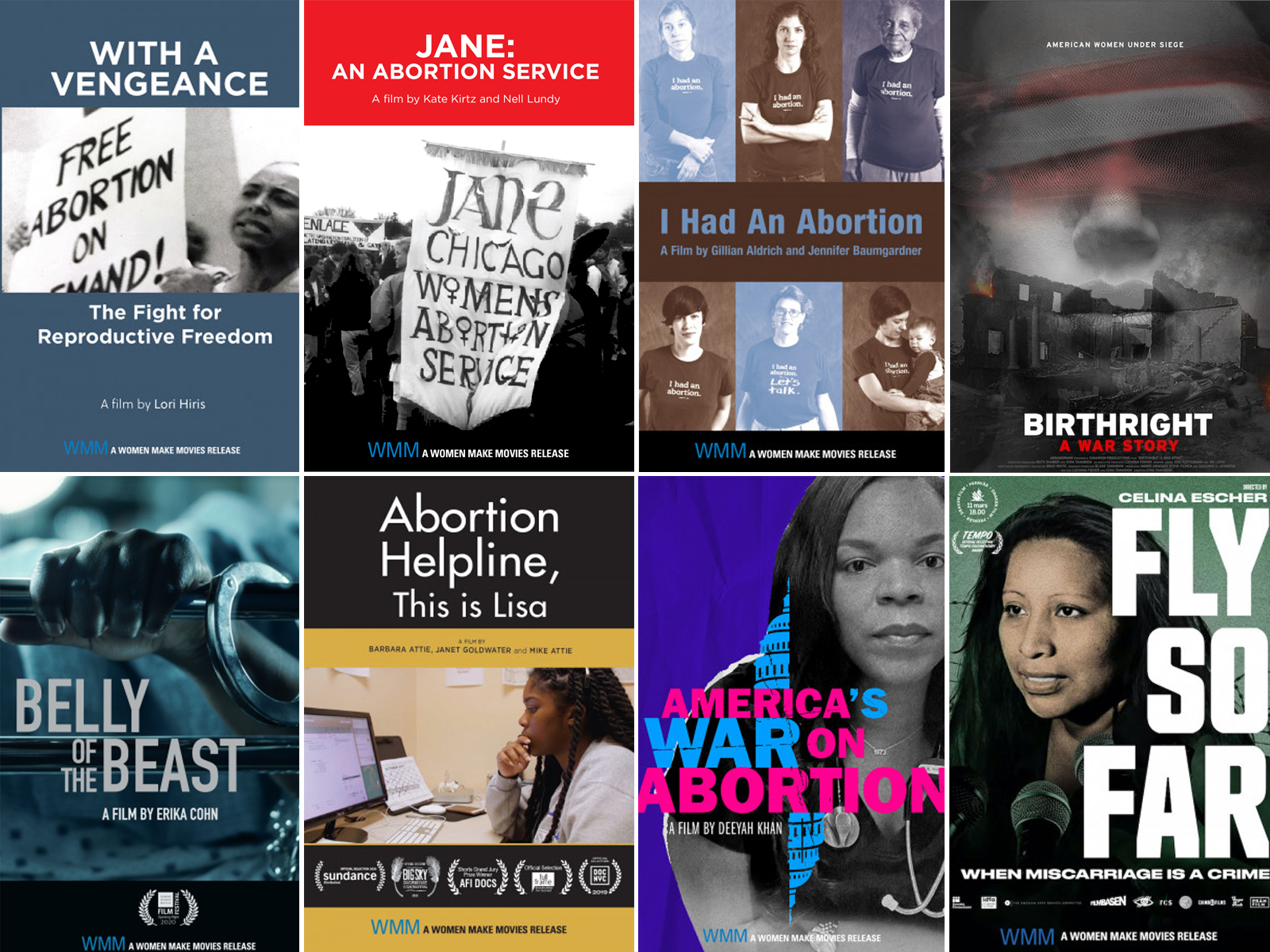
- Industry
Facing the Abortion Struggle: The Voices of Women Filmmakers
For more than 30 years, HFPA grantee Women Make Movies has produced and financed films by female directors that tackle the difficult subject of reproductive rights. Watching some of these through the lens of what happened on June 24, when the US Supreme Court overturned the almost 50-year-old Roe vs. Wade abortion ruling, is especially painful. Here are some relevant documentaries that are worth looking up.
With A Vengeance is the earliest film in the series. Made in 1989, it chronicles the women’s movement of the 1980s. With rare archival footage of protests and marches, it was put together in black & white by Lori Hiris. Two African American women who were early leaders for reproductive rights, Flo Kennedy and Byllye Avery, make the connection between healthcare for the poor, reproductive freedom, and racism. “It is pitiful that we still fight to keep abortion safe and legal,” they said in 1984. Wonder what they would say now?
In Jane: An Abortion Service, we learn about the women behind the now very well-known Jane Collective, founded out of necessity in the 1960s, and serving women of all colors and social statuses on a sliding financial scale. The Janes, as they were called, got busted in 1972, but were never sentenced due to the Roe vs. Wade decision of 1973. The doc was made in 1996 by Kate Kirtz and Nell Lundy, when all of the Jane founders were still alive, and lived and spoke in the safe environment of a time when we all believed that Roe vs. Wade was here to stay – forever.
Nine years later, in 2005, Gillian Aldrich and Jennifer Baumgardner interviewed ten women in I Had An Abortion, among them feminist and activist Gloria Steinem, all of whom tell their own, very personal stories. Their experiences span seven decades and paint an honest picture of the years both before and after the Supreme Court decision of 1973.
“It is a very scary time in the United States right now for a woman to become pregnant,” and “The anti-choice movements have moved into positions of power,” say two legislators in Birthright: A War Story, which was released in 2017, just as more and more states were tightening the laws on abortion during the first year of the Trump presidency, thereby setting the stage for overturning Roe vs. Wade. The documentary by Civia Tamarkin feels like a real-life Handmaid’s Tale.
That same year, 2017, modern-day eugenics and reproductive injustice were the center of Belly of the Beast, an Emmy-winning documentary filmed over the course of seven years by Erica Cohn, who exposed a pattern of illegal sterilizations in California prisons by getting intimate accounts of formerly incarcerated women for her doc. What is so shocking here is that this happened in a progressive state. But it turns out that, as investigative reporter Cory Johnson says in the film, “more than 20,000 people were sterilized in California – more than in any other state in the country,” long before it became common practice in Nazi Germany. Post World War 2, there were also advertising campaigns to sterilize indigenous women and others of color. But to the many women featured in the doc, this happened in the 2010s. Even after the passing of a bill banning these cruel practices, CDCR doctors were never held accountable.
Abortion Helpline, This is Lisa, a short film by Barbara Attie, Janet Goldwater, and Mike Attie came out two years later. Featuring the women of a call-in service who are all called Lisa (in order to stay anonymous, just like the Janes), the subject matter is the 1976 Hyde bill, so named after a Republican congressman, that banned federal funding for abortion. The organization relies on donations, and more often than not cannot help women in need. The Hyde amendment is in effect to this day and one in four Medicaid recipients who try to get an abortion have to carry their pregnancies to term because of it.
America’s War on Abortion, by Deeyah Khan, was made in 2019 and released in 2020: it has won a BAFTA award. In it, the director examines the erosion of reproductive rights in the United States. Khan put herself on the front and between activists who fight both for and against women’s rights, making it abundantly clear that many so-called pro-lifers lack a lot of knowledge in regard to this issue and are often members of fanatical religious groups, repeating what their leaders, most often white men, have told them. The genius aspect of this documentary is that the film highlights the stories of those too often forgotten in this war who find themselves nonetheless on the frontlines: impoverished women and women of color.
Fly So Far, directed by Celina Escher, creates an especially eerie feeling in the viewer after the reversal of Roe vs. Wade: all of a sudden, the stories of women in El Salvador who are arrested and incarcerated, not just for terminating unwanted pregnancies but even for miscarriages, accused of murder and often sentenced to life in prison, do not seem quite so far away anymore. Any US state with a total ban on abortion will now legally be able to do the same. The 2021 film follows Teodora Vasquez who was sentenced to thirty years in a Salvadorean prison after she suffered a stillbirth. In one especially poignant scene, she says: “The government owns my body.”

